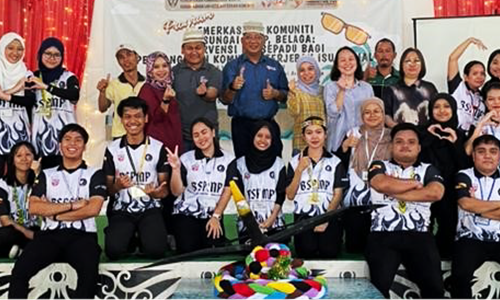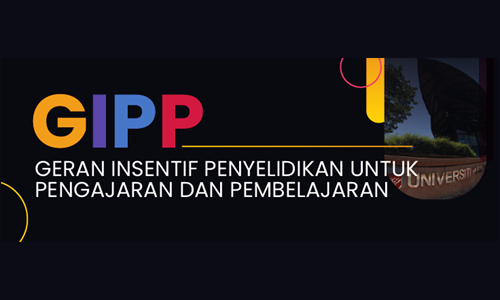| |
Serious games for teaching and learning
|
| |
|
A serious game serves a specific purpose other than pure enjoyment. It is designed with specific learning, or training objective, and goes beyond entertainment. While delivering meaningful content, a serious game would combine game elements with a simulation of the real world, and provide active engagement. It further embeds the experience with in-depth information and choices stimuli, and allows players to reflect, learn, and achieve the learning objective.
Through a serious game, the players could immerse in a virtual environment that is safe for the players to learn and practice new skills. Along with gameplay elements, it can be used to, for example, train medical professionals in surgical procedures, pilots in flight simulations, or financial literacy training. The players would enjoy and gain valuable experience that is simulated from the real world.
Serious games have gained popularity due to their effectiveness in engaging users and promoting active learning. It should be differentiated from either gamification or simulation. The classification of games can be referred to the following elements:
|
| |
 |
| |
Figure 1: Game classification (adapted from Marczewski (2015))
|
| |
| |
|
Based on Figure 1, it can be noted that serious game characteristics would include game elements, virtual world, and gameplay. Different from the common game, a serious game is not purely for entertainment, but it has a specific objective to fulfill.
|
| |
| |
Serious game for accounting
|
| |
|
Putra Salamanis (PSM) Bookkeepers is an example of how a serious game can be used to practice bookkeeping in accounting fundamental courses (Selamat & Ngalim, 2022). The board game was developed to embed the Generally Accepted Accounting (GAAP) accounting principles. It also applies the accrual basis through the simulation of business transactions. It has a storyboard that clarifies the roles of the players, which accentuates the learning experience. It also employs the gamification elements, such as challenges, levels, rewards, and penalties, which intrinsically motivate the player to self-learning.
|
| |
 |
| |
Figure 2 and 3: Revision sessions for accounting fundamental course students held in the School of Business and Economics using the board game.
|
| |
| |
|
The board game has been used as an alternative, or a support learning material for the accounting fundamental course in the School of Business and Economics (SPE), UPM (refer to Figure 2, 3, 4 and 5 for the teaching and research activities on the board game). As the accounting fundamental course has been made to be an elective for some non-SPE degree programs, the students who are taking this course come from diverse backgrounds. The subject is widely known to be difficult and dry, as the recording exercise follows conventional accounting principles, which are different from the cash basis. This has made the subject both challenging and confusing for some.
Regardless of the difficulties, the use of the board game has assisted the students to better learn the subject matters. A significant increase in understanding has been observed among students that have played the game. Almost 60% of the students have shown an increased understanding of concepts. In other words, the use of the board game in teaching bookkeeping has resulted in positive outcomes for students and lecturers alike.
|
| |
 |
| |
Figure 4 and 5: The board game testing sessions with the students and lecturers.
During this session, feedbacks were gathered for the board game improvement.
|
| |
| |
PSM Bookkeepers in Indonesia
|
| |
|
The authors received an invitation from the Universitas Negeri Malang, Indonesia, for an academic visit engagement from 13 to 17 March 2023. In one of the sessions, we had the chance to share our knowledge about games in teaching and learning with the Accounting Education degree program students. The use of PSM Bookkeepers in accounting was demonstrated and later allowed them to experience it themselves by playing it.
|
| |
 |
| |
Figure 6: The room was brightened up with phone’s torch light during the game session.
|
| |
| |
|
The session lasted about two hours. The electricity went on and off about two or three times throughout the session, resulting in a full blackout that lasted for a few minutes. Amazingly, the students maintained their position, turned on their phone’s torch light, and remained fully engaged with the game (Figure 6). This scenario surprised us and their lecturers, who would expect that the students would stop playing and resume only after the power was back. The session was concluded successfully as planned (Figure 7 and 8).
|
| |
 |
| |
Figure 7 and 8: Group photos with the Universitas Negeri Malang’s students and lecturers.
|
| |
| |
|
From the experience we observed in Indonesia, we found that intrinsic motivation is essential in students’ learning process. The serious game is one of the many ways to capture and maintain their motivation to learn. Through its narrative or storytelling, it leads to engagement, which effectively encourages self-learning. The following expression was captured in a survey conducted following the game session:
|
| |
 |
| |
Figure 9: The students’ expression from the game experience in Universitas Negeri Malang.
|
| |
| |
|
Intrinsic motivation can also be spurred through the sense of autonomy and control, which can be offered through choices, freedom, and the ability to make decisions. Appropriate challenges and tasks can also provide the player a sense of accomplishment that enhances intrinsic motivation. Therefore, the right balance between difficulty and achievability must be obtained through gameplay. As players overcome challenges, they improve their skills and experience a sense of competence. Additionally, meaningful feedback is also crucial. It gives a sense of direction and assists with the player’s progress while they are making improvements.
In conclusion, through a combination of game elements, simulation, gameplay, and meaningful content, the serious game, i.e. PSM Bookkeepers, has been evidenced to be effective in education and training. The game leverages intrinsic motivation, which empowers players to actively learn and develop new skills through the simulation of business transactions. The serious games will continue to revolutionize how we approach learning and problem-solving, and drive positive change and meaningful impact in educational settings.
|
| |
| |
References
|
| |
- Marczewski, A. (2015). Game Thinking. Even Ninja Monkeys Like to Play: Gamification, Game Thinking and Motivational Design (1st ed., pp. 15). CreateSpace Independent Publishing Platform.
- Selamat, A. I., & Ngalim, S. M. (2022). Putra Salamanis board game: the game of bookkeeping for fundamental financial accounting learning. Accounting Education, 31(5), 596-614.
- Nicholson, S. (2015). A recipe for meaningful gamification. Gamification in education and business, 1-20.
|
| |
| |
|
| |
|
Prepared by:
|
































